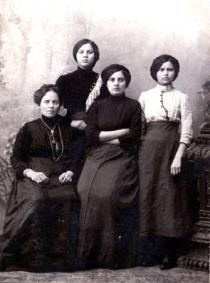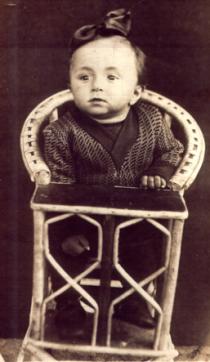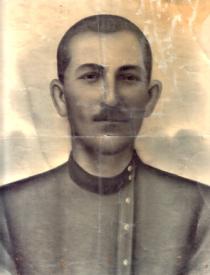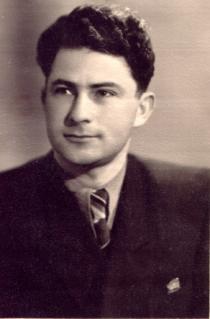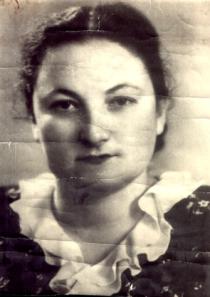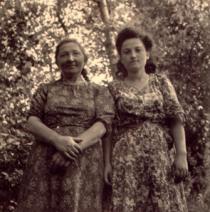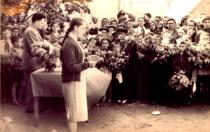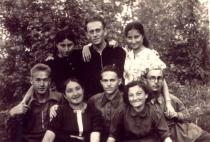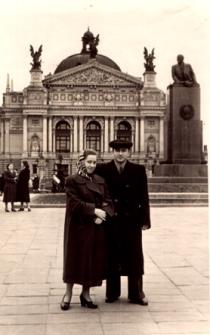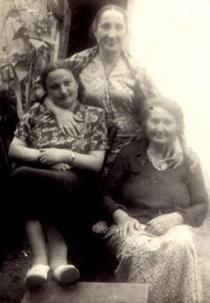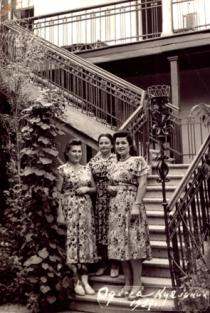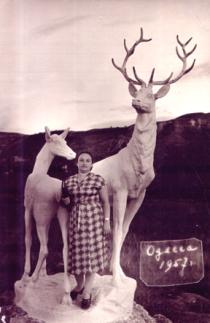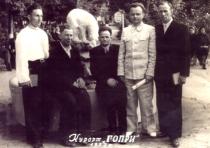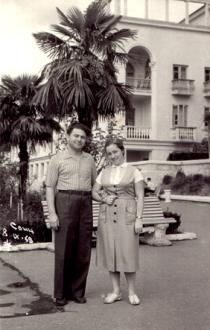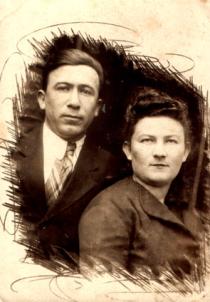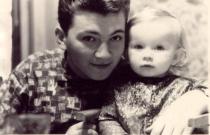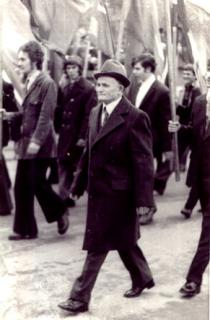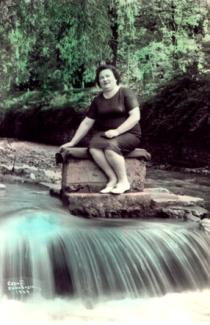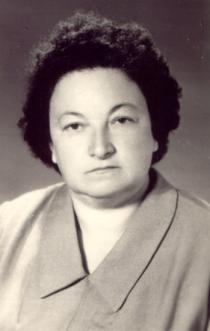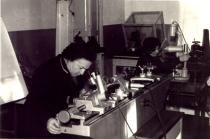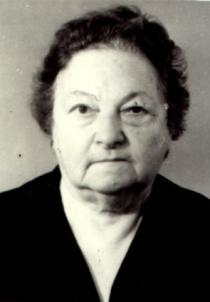My husband Lev Gershenzon (3rd from the left) photographed with his friends during his vacation on the Gopri resort in 1957.
I met my second husband Lev Gershenzon, his Jewish name is Leib, when I was on vacation in Mogilyov-Podolskiy. He was a teacher of chemistry at an evening school. Lev was born in 1914 in Shargorod town of Vinnitsa region [about 350 km from Kiev]. Shortly after Lev was born - before the revolution - his father Abram Gershenzon moved to USA. He didn't have any contacts with his family. Lev was the youngest of all children. He had two older brothers: Moisey and Aron. Lev's mother died from typhus in 1918. Their relatives sent Moisey to a children's home. Aron was raised in his uncle's family and Lev was raised by his grandmother. Lev finished 8 forms of the 8-year Jewish general education school in Shargorod and went to Vinnintsa to continue his studies. He worked as a loader at the railway station during a day and in the evening he attended a rabfak school. He finished the rabfak with honors and was sent to the Chemical Faculty of Odessa University. He lived in the dormitory. To earn his living he unloaded railcars at night. Lev finished his college with honors and got a job assignment to work as a teacher of chemistry and biology in the Jewish general education school in Chernivtsy Vinnitsa region [about 300 km from Kiev] where he married a local Jewish girl. In 1938 their daughter Sophia was born. When the war began, my husband's brothers went to the front.
Lev and his family stayed in Chernivtsy. Soon after Chernivtsy was occupied Germans gathered all Jewish and Ukrainian communists, took them out of the village and ordered them to dig pits. When the pits were ready they buried people alive, left one young guard to watch the area and left. The villagers brought this guard gold and whatever valuables they managed to get to allow them to rescue any survivors. Some of those who were nearer to the surface, including Lev, survived. He could stay no longer in Chernivtsy for the fear of being reported to Germans and he left the village at night. Lev knew about the ghetto in Mogilyov-Podolskiy and thought he might go there to get lost among the people who did not know him. Some time later somebody reported on him that he was a communists. He was taken to interrogations where he was terribly beaten. It was fortunate for him that those were Romanians guarding the ghetto for Germans would have killed him for sure. He was taken to hospital as if to get treatment after these beatings, but actually there were experiments conducted on its patients. It became known recently. My husband receives monthly compensation nowadays. The Soviet army liberated the ghetto in March 1943. Lev returned to Chernivtsy. His wife and daughter were in Chernivtsy and managed to survive. Lev went back to his work. The Jewish school of Chernivtsy was closed after the war in 1945. Lev and his family moved to Mogilyov-Podolskiy, where he went to work as a teacher of chemistry and biology in a Ukrainian general education and evening schools. Lev was highly valued at work. In 1947 his son Mikhail was born in Mogilyov-Podolskiy. In the late 1950s doctors discovered that his wife had cancer. She had a surgery, but it didn't help. She died in 1960. When I met Lev, he lived alone. After finishing the Medical College his daughter got married. She and her husband moved to Balashikha town near Moscow. She worked as a doctor in a hospital and her husband was an engineer at a construction site. His son got married after finishing his college and stayed to live in Krasnodar.

